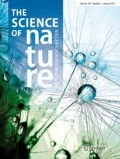Abstract
Sleep timing of humans can be classified alongside a continuum from early to late sleepers, with some people (larks) having an early activity, early bed, and rise times and others (owls) with a more nocturnally orientated activity. Only a few studies reported that morningness–eveningness changes significantly during the adult lifespan based on community samples. Here, I applied a different methodological approach to seek for evidence for the age-related changes in morningness–eveningness preferences by using a meta-data from all available studies. The new aspect of this cross-sectional approach is that only a few studies themselves address the age-related changes of the adult lifespan development, but that many studies are available that provide exactly the data needed. The studies came from 27 countries and included 36,939 participants. Age was highly significantly correlated with scores on the Composite Scale of Morningness (r = 0.70). This relationship seems linear, because a linear regression explained nearly the same amount of variance compared to other models such as logarithmic, quadratic, or cubic models. The standard deviation of age correlated with the standard deviation of CSM scores (r = 0.55), suggesting when there is much variance in age in a study; in turn, there is much variance in morningness. This meta-analytical approach shows that morningness–eveningness changes across the adult lifespan and that older age is related to higher morningness.

References
Adan A, Archer SN, Hidalgo MP, Di Milia L, Natale V, Randler C (2012) Circadian typology: a comprehensive review. Chronobiol Int 29:1153–1175
Baehr EK, Revelle W, Eastman CI (2000) Individual differences in the phase and amplitude of the human circadian temperature rhythm: with an emphasis on morningness-eveningness. J Sleep Res 9:117–127
Barclay NL, Eley TC, Mill J, Wong CCY, Zavos HMS, Archer SN, Gregory AM (2011) Sleep quality and diurnal preference in a sample of young adults: association with 5HTTLPR, PER3, and CLOCK 3111. Am J Med Genet Part B: Neuropsychiatr Genet 156:681–690
Di Milia L, Adan A, Natale V, Randler C (2013) Reviewing the psychometric properties of contemporary circadian typology measures. Chronobiol Int 30:1261–1271
Duarte LL, Menna-Barreto L, Miguel MAL, Louzada F, Araújo J, Alam M, Pedrazzoli M (2014) Chronotype ontogeny related to gender. Braz J Med Biol Res 47(4):316–320
Griefahn B, Künemund C, Bröde P, Mehnert P (2001) Zur validität der deutschen übersetzung des morningness-eveningness-questionnaires von horne und östberg. Somnologie 5:71–80
Horzum MB, Randler C, Masal E, Beşoluk Ş, Önder İ, Vollmer C (2015) Morningness–eveningness and the environment hypothesis—a cross-cultural comparison of Turkish and German adolescents. Chronobiol Int 32:814–821
Kim SJ, Lee YJ, Kim H, Cho IH, Lee JY, Cho SJ (2010) Age as a moderator of the association between depressive symptoms and morningness–eveningness. J Psychosom Res 68:159–164
Klei L, Reitz P, Miller M, Wood J, Maendel S, Gross D, Waldner T, Eaton J, Monk TH, Nimgaonkar VL (1998) Heritability of morningness-eveningness and self-report sleep measures in a family based sample of 521 hutterites. Chronobiol Int 22:1041–1054
Merikanto I, Kronholm E, Peltonen M, Laatikainen T, Lahti T, Partonen T (2012) Relation of chronotype to sleep complaints in the general finnish population. Chronobiol Int 29:311–317
Paine SJ, Gander PH, Travier N (2006) The epidemiology of morningness/eveningness: influence of age, gender, ethnicity, and socioeconomic factors in adults (30–49 years). J Biol Rhythms 21:68–76
Randler, C. (2007). Gender differences in morningness-eveningness assessed by self-report questionnaires: a meta-analysis. Personal Individ Differ 43:1667–1675
Randler C (2011) Age and gender differences in morningness–eveningness during adolescence. J Gen Psychol 172:302–8
Randler C, Schaal S (2010) Morningness-eveningness, habitual sleep-wake variables and cortisol levels. Biol Psychol 85:14–18
Randler C, Ebenhöh N, Fischer A, Höchel S, Schroff C, Stoll JC, Vollmer C (2012) Chronotype but not sleep length is related to salivary testosterone in young adult men. Psychoneuroendocrinology 37:1740–1744
Smith CS, Reilly TC, Midkiff K (1989) Evaluation of three circadian rhythm questionnaires with suggestions for an improved measure of morningness. J Appl Psychol 74:728–738
Taillard J, Philip P, Chastang JF, Bioulac B (2004) Validation of Horne and ostberg morningness-eveningness questionnaire in a middle-aged population of French workers. J Biol Rhythms 19:76–86
Tonetti L, Fabbri M, Natale V (2008) Sex differences in sleep-time preference and sleep need: a cross-sectional survey among Italian pre-adolescents, adolescents, and adults. Chronobiol Int 251:745–759
Author information
Authors and Affiliations
Corresponding author
Ethics declarations
Conflict of interest
The author declares that he has no competing interests.
This article does not contain any experiments with human participants performed by any of the authors. For this type of study, formal consent is not required.
Additional information
Communicated by: Sven Thatje
Rights and permissions
About this article
Cite this article
Randler, C. Ontogeny of morningness–eveningness across the adult human lifespan. Sci Nat 103, 3 (2016). https://doi.org/10.1007/s00114-015-1326-z
Received:
Revised:
Accepted:
Published:
DOI: https://doi.org/10.1007/s00114-015-1326-z

